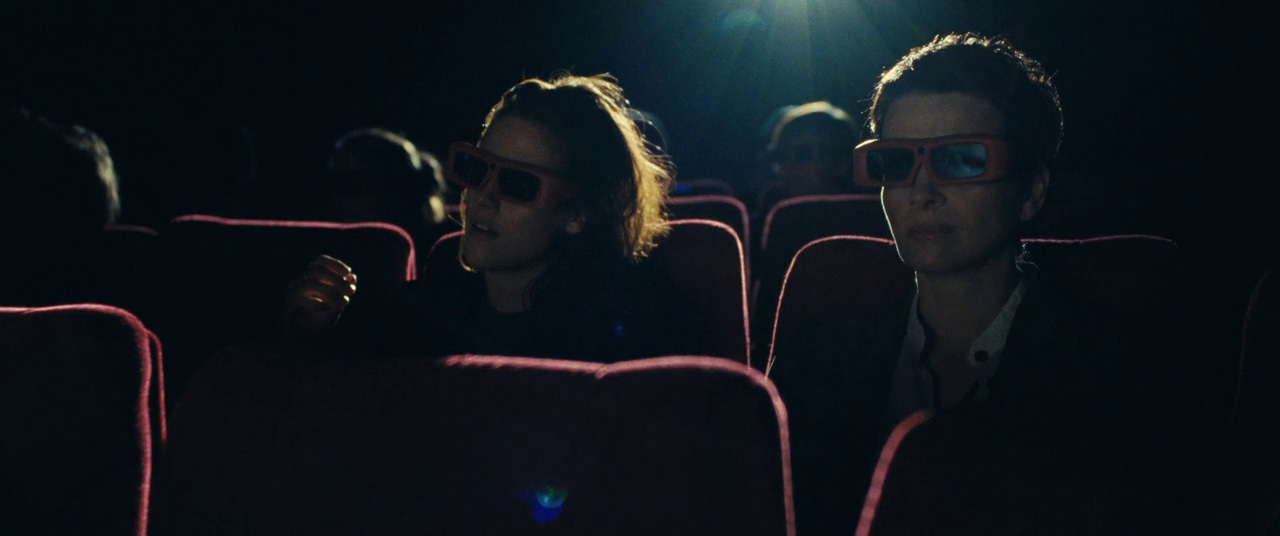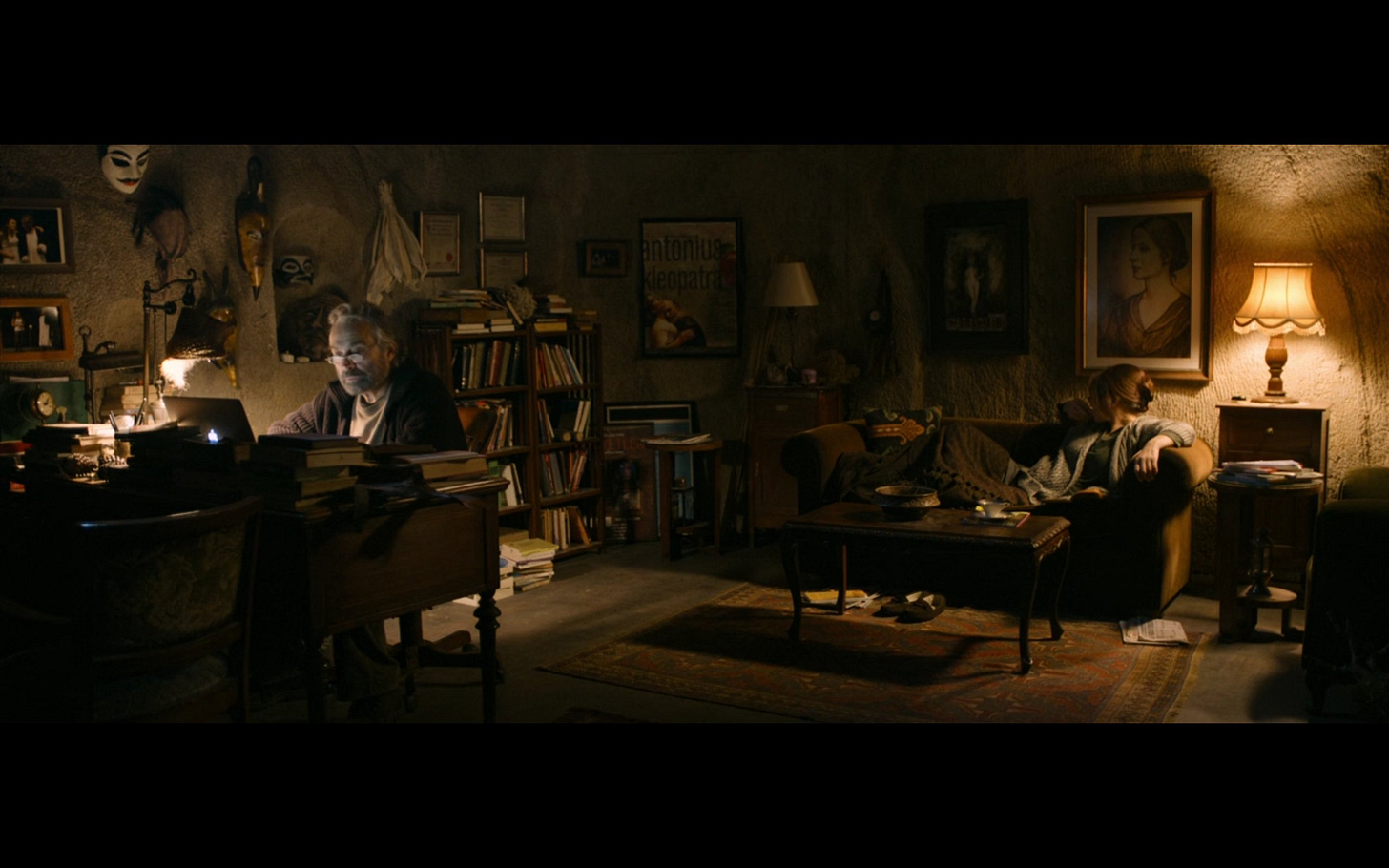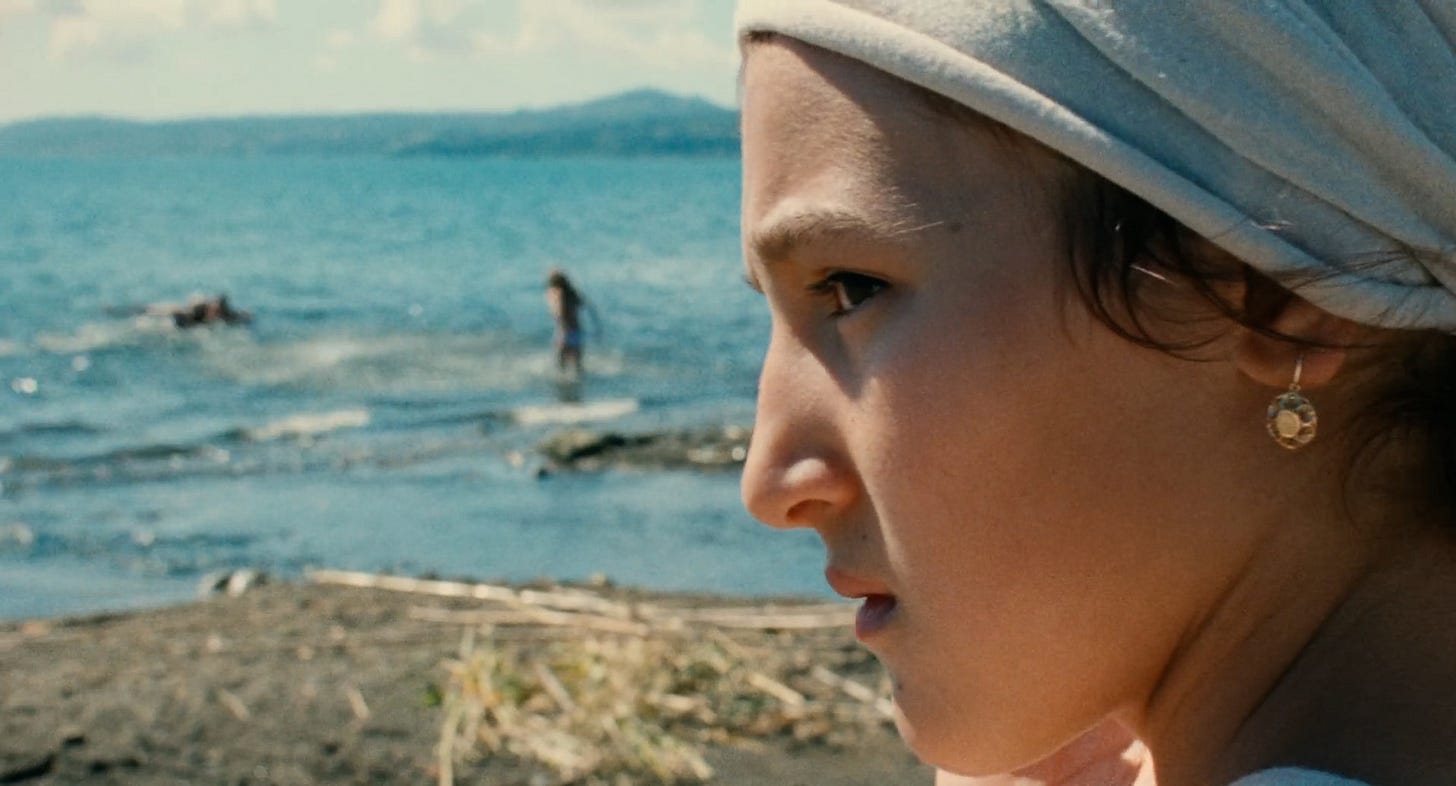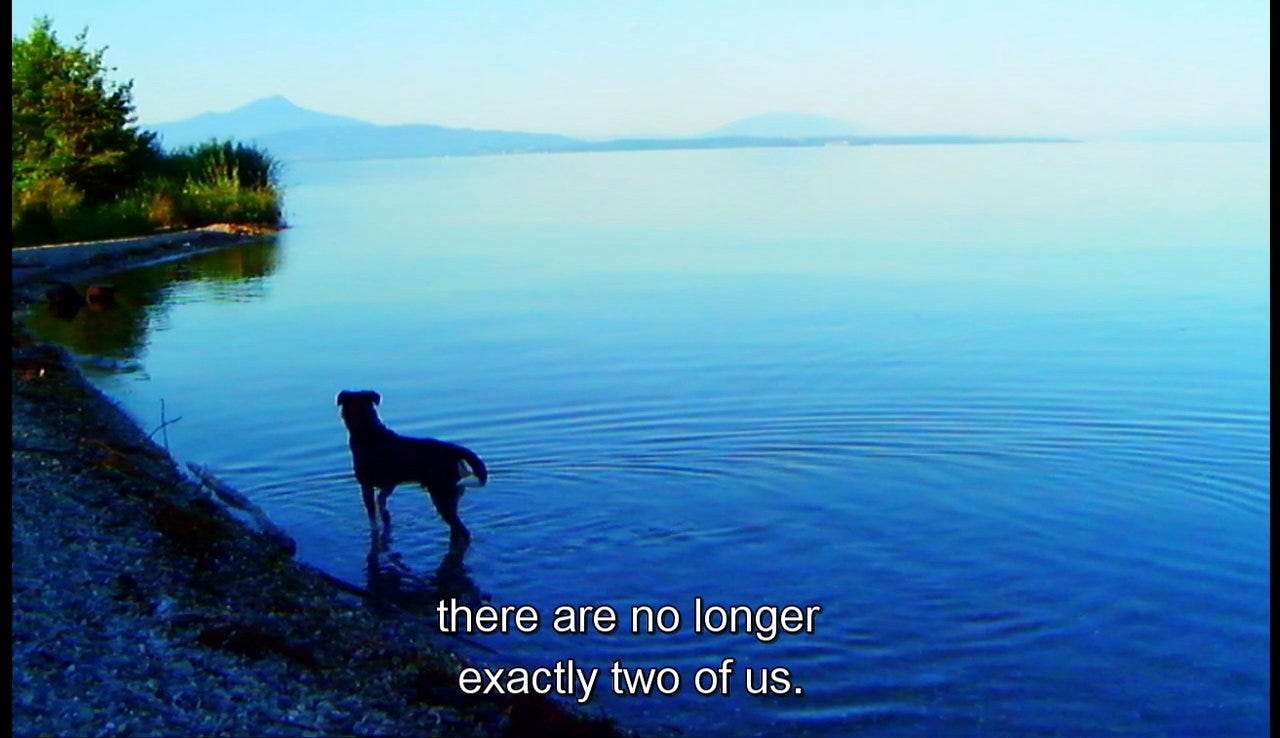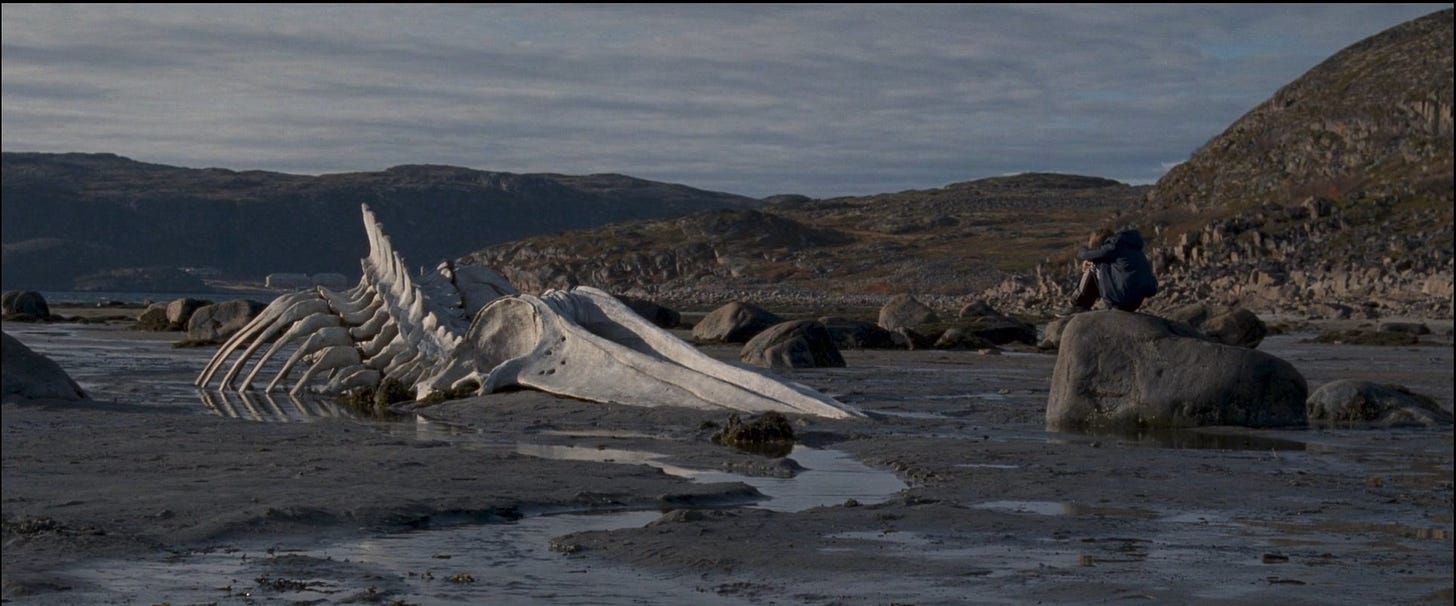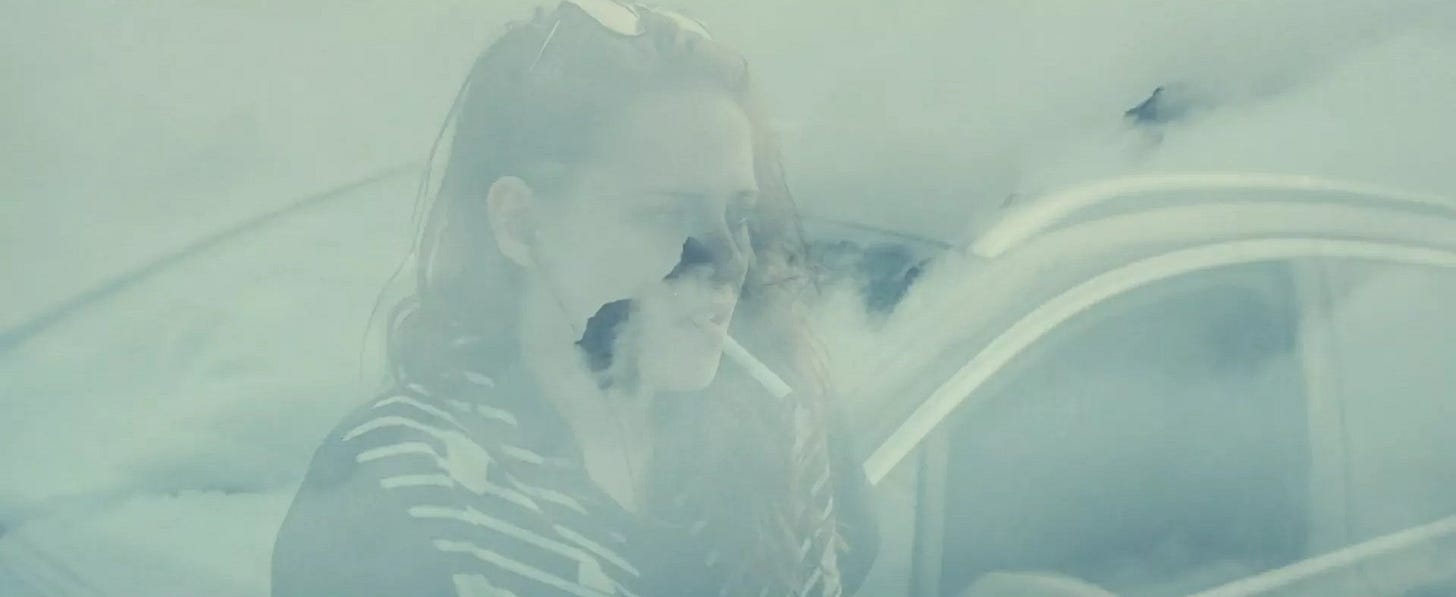Goodbye to Free Time: Marathoning the 2014 Cannes Slate
Elliott watched the films of the 2014 Cannes Film Festival. Extended thoughts, awards, rankings ensue...
Some people have the goal of running a marathon. Good for them! I prefer for marathons to be in movie form. I’d wanted to embark on a marathon that involved a Cannes In Competition slate for years now. With the 2014 Carousel (Even Better’s look back on 2014 this month), I had an excuse to do so.
What’s an In Competition slate? It’s the group of films that have been selected by a film festival to compete for the top prize. At Cannes, that’s the Palme d'Or. The Palme d’Or and all other awards are decided by a jury of notable artists in the film industry. The 2014 Cannes squad is pictured below.

I’ve watched a film festival In Competition slate once before — the Gig Harbor (my hometown) Film Festival in 2018, when I worked there as the Development Director. I was even on the jury that voted! My fellow jury members and I bestowed our version of the Palme to the comedy Bernadette. Bernadette was a lighthearted flick; a summery, feel-good romp you might say.
The 2014 Cannes In Competition class was anything but feel-good. This group of films was largely depressing as hell. I’m no stranger to frequently watching bleak movies and being comfortable doing so, but I’m intentional about breaking things up with something like an Adam Sandler joint if I’m on an especially heavy streak. Remember the Simpsons’ film festival episode? The Cannes 2014 lineup was one Barney Gumble film after another. As I was making my way deeper into this project, I would’ve given anything for a picture closer to Hans Moleman Productions Presents: Man Getting Hit By Football.
I wanted to immerse myself in the full Cannes jury experience (as much as I could in my living room), so I would watch the films in order of when they premiered from top to bottom. I even attempted to pack my days with multiple movies and nearly succeeded in watching all of the films in the same timespan that the jury watches them (about 9 days). Here is the list of the 18 movies — 13 of them were going to be new to me.
Zero time was wasted getting to a heavy hitter. I looked over my little itinerary and saw that I’d be kicking things off with the Palme d’Or winner, Nuri Bilge Ceylan’s 196-minute drama, Winter Sleep. It’s a fascinating if not slightly perplexing Palme choice (they often are perplexing, Ruben Östlund has two of them for god’s sake). Much of the movie is characters talking in a room, with Aydin the protagonist slowly revealing himself to be a grade A asshole. He’s not a horrible man, he’s just a jerk, and Ceylan’s grasp of disillusionment lingers the more space I have from my viewing. I’m wondering if Winter Sleep’s Palme chances would be less had it been one of the last films shown — did it gain an advantage by living in the memories with the jury longer than almost any other feature? Maybe not…I am admittedly lower on this one than most. Striking landscapes and production design though.
It was on Day 2 that I started getting several films in per day. Canadian director Atom Egoyan is responsible for making Exotica, one of my favorite films of all time. He also bears responsibility for making the movie I hated the most during this marathon. The Captive is a shallow child kidnapping story starring Ryan Reynolds (unthinkable 10 years later that we’d ever see him in competition at Cannes again) that could be mistaken for a throwaway CBS procedural. Penning and making some of the most thoughtful films that center on child abuse (The Sweet Hereafter, Exotica), it was disheartening to see Egoyan deliver such low end slop on the same sensitive topic. You know those movies that actively make you angry as things unfold because of how stupid everything is? That was me with The Captive. Especially because I know you’re better than this Atom.
Film #2 of Day 2 was Wild Tales, an Argentine movie helmed by Damián Szifron that, to my astonishment, is in the IMDB top 250 (always fun to have a look at that joke of a list… last I saw the new Deadpool was one spot ahead of Tokyo Story). Wild Tales is six not in any way connected short stories in the span of two hours of varying quality, though the best of the bunch isn’t even all that great. Unclear why throwing together 6 shorts that you’d see at your local film festival into one piece made IMDB users go gaga. It was here when I started to wonder if if I was going to regret this Cannes journey.
But that feeling came and went. Things started to heat up on Day 3 with the back to back of The Homesman and The Wonders. Tommy Lee Jones directs and stars alongside Hilary Swank in the former, an affecting and star-studded Western. Swank and Lee Jones are tasked with transporting three women that have been driven mad across the Nebraska Territories. The Homesman is a rare, genuinely great contemporary Western that borrows influence from the genre’s forefathers. It’s anchored by Tommy Lee Jones’s touching direction and Swank’s dependably strong-willed acting that she pairs naturally with notes of vulnerability and grace.
Speaking of grace — Alice Rohrwacher. She secured her position as one of my favorite working filmmakers after catching The Wonders. Rohrwacher’s camera floats with affection for her characters, permitting space and gravity to moments of contemplation. After loving Happy as Lazzaro and La Chimera (my favorite film of 2023), it made all too much sense for her earlier films to center on adolescents. All expressions carry weight as 12-year-old Gelsomina attempts to make sense of her strange life. It’s another subtle yet powerful entry in Rohrwacher’s body of work that features unconventional families living on the outskirts of larger society.
The next day brought Still the Water by Japanese director Naomi Kawase, and Foxcatcher, by Bennett Miller of Capote and Moneyball fame. Kawase’s film had fleeting scenes of beauty with potent images only to add up to a fairly empty experience when things (attempt to) come together. It wins my biggest shrug of the festival. The Palme d’Shrug let’s call it. I never did see Foxcatcher when it came out, that movie where Steve Carell was nominated for an Oscar because his nose looked huge. I kid, but it’s so intent on being serious that it can’t avoid being pretty ridiculous, from Channing Tatum’s knuckle-dragging caricature to Carell’s nasally psychopath. Bennett Miller provides characterless direction, making his Best Director award another head-scratcher from this jury. I think Foxcatcher is probably a full star better if you’re watching it on TNT with commercial breaks and sun glares on your TV versus viewing it with the Cannes competition.
It was especially funny to follow Foxcatcher with my biggest blindspot of the fest, Jean-Luc Godard’s Goodbye to Language — a film that does nothing short of rewriting the language of cinema by somebody who has rewritten said language many times over. Fifty-four years before this festival, Godard’s Breathless was immediately heralded as groundbreaking. It was punk before punk was a term. Breathless was also cool as shit and moderately accessible to the modern audience. Breathless is like Raiders of the Lost Ark compared to Goodbye to Language in terms of accessibility. Released when he was 84, Goodbye to Language follows a man and a woman. And their dog. They’re separate, and then they’re one and the same. They’re all the same. The attempted communication between this couple is curtailed as 3D images (I still haven’t seen it in its proper 3D format, by all accounts it’s overwhelming) absolve any trace of connection and understanding. It’s a prescient, arresting film by one of the medium’s greats. Godard is a textbook example of an artist who was always evolving, interrogating what it means to make and view cinema, and what it means to be human. To Godard, these are all the same questions.
The French cult prodigy Xavier Dolan followed the French master. To be blunt and and uncharitable, Mommy is like if a film was made for the purpose of making it on an end-of-year David Ehrlich countdown video (big time “Wonderwall” and “Born to Die” needle drops). The script and Anne Dorval aka French Marisa Tomei really swing for it. There’s a lot of strikes in the film, but none looking. It shifts between thoughtful and hollow depictions of mental illness many times, making it complicated to stand on firm ground as a viewer. I didn’t quite detest it like I did the Best Picture winner of this year (Birdman), but I was kinda sorta reminded of it as a film that says so much, but doesn’t have much to say. To quote Spike Lee, Xavier Dolan…not my cup ‘o’ tea.
For any slights I just threw at Mommy, I missed the film on the front half of my final, loaded day of first time watches. I was never checking my watch during Mommy. I couldn’t wait for The Search to be over when I was only 15 minutes in. Oh, you haven’t heard of The Search? Well, it’s the follow-up from Michel Hazanavicius after he won best director for The Artist (beating out Scorsese, Terrence Malick, Woody Allen and Alexander Payne lol). The Search was the only film in this list that wasn’t streamable online, and couldn’t be found at my beloved Scarecrow video store. I resorted to watching it on a sketch website. The Search has 1.4 thousand logs on Letterboxd. You win Best Director…and then you go and make a film that barely exists.
The Search is set in worn-torn Chechnya, Russia as a boy bonds with a woman who works for NATO. Annette Benning is in it for some reason. There’s a side plot that feels inspired by Full Metal Jacket without any of Kubrick’s bite (or talent for that matter), plus totally at odds with what’s happening in the main story. It’s lifeless direction that all adds up to “war is evil.” The film is better off in obscurity.
I wouldn’t necessarily damn Ken Loach’s Jimmy’s Hall to the same fate because I think the film does have an audience. It simply isn’t me. You ever have it where you understand exactly what a film is doing like 10 minutes in but there’s still 90 minutes to go? I quickly identified Jimmy’s Hall for what it would be: an oppressed vs. oppressors movie where we root for the oppressed, but the oppressors are going to win, but do they really win because at least the oppressed stood up for themselves and have their dignity? I don’t even care too much about plot, but it was evident early on that Loach wasn’t going to do anything formally to engage me.
Thankfully, we ended well with the last two newbies. I don’t often see Krzysztof Kieślowski’s influence in movies, but his voice (along with Russian literature and the Old Testament) had its mark all over Andrey Zvyagintsev’s Leviathan. This tale of betrayal, corruption, and human fecklessness imbues a chilliness that’s appropriate for the cold climate of Pribrezhny, the Russian coastal town. It’s like Breaking the Waves era Lars Von Trier but more delicate and observing. Or perhaps more accurately, Leviathan is baked in the beliefs of German philosopher Arthur Schopenhauer — that to be human is to desire, and to desire brings misery. Pessimistic, I know, but it’s a film I can and will easily recommend to people as one of the most absorbing of this batch.
Mr. Turner by the British living legend Mike Leigh…what a fine picture! The film is in English, but the subtitles were as necessary as for any film that wasn’t in my primary language — partially due to the thick accents, primarily because half of Timothy Spall’s (the titular Mr. Turner) lines were grunts and snorts with words in between. Leigh’s signature blend of sour humor and in-your-face feeling was center stage. Minor Leigh is never not a major film. Though Mr. Turner was my second favorite untraditional biopic about an artist in this festival — #1 was Saint Laurent, as we get into the films I had already seen. Bertrand Bonello’s traversal of a decade in the life of French fashion icon Yves Saint Laurent in the 1960s and ‘70s, Saint Laurent doesn’t just successfully fail at being a standard biopic, it hardly follows the conventions of a normal movie. Aside from Goodbye to Language, it’s the most difficult film to capture in a blurb. Nick Newman did it as well as anybody can right here that I simply want to link to it. It has stayed with me like few films have these past few months.
It’s time to confess that I didn’t rewatch Two Days, One Night by the Dardenne brothers. You may accuse me of being a fraud by not going all the way. My report card on this assignment may result in an incomplete. I’d simply exhausted my capacity for heaviness. The excuse I’m using is that I did the work 10 years ago, and I’m choosing to remain confident in the movie’s greatness. Two Days, One Night was firmly in the Dardennes’ multiple decade run of delivering naturalistic masterwork after masterwork about the working class. In indie rock terms, they were like Spoon, nearly boring in their dependable high quality. So much has been said about Marion Cotillard’s lead turn and for good reason. She’s a hurricane in the film yet manages to receive ample empathy from us as viewers.
Another film that smacked my desire for justice around years ago was Timbuktu. It floored me as a junior in college, but has sadly been reduced to a film I admire more than love upon revisit. Malian director Abderrahmane Sissako stages the uncompromising horror of Islamic militant rebels that take over the city of Timbuktu with real clarity. It’s no less harrowing, but the moments of grace didn’t zip into my heart as much, and as I pay infinite more attention to form and filmmaking than I used to, I wasn’t too moved in that department. An important story, if not the great film I thought it was.
We conclude with two late period classics from two of my favorite working guys, both involving the movie business and actresses who are grappling with the prospect of playing a role that triggers unresolved feelings and flashbacks to when they were younger.
I wouldn’t dare say that David Cronenberg’s Maps to the Stars is as major as Mulholland Drive, because in terms of American cinema this century, what the fuck is? Though as another film that posits the relentless evil of Hollywood, Maps to the Stars is eviscerating, depicting the city of angels not as some dreamy mecca, but a place where there’s absolutely nothing except for looking out for oneself. Marty Wolf in Big Fat Liar calls Hollywood a fish-eat-fish town. That’s putting it lightly. You know the opening of Blue Velvet where the camera floats around the romanticized apple-pie suburbia before descending below ground to bugs crawling in the dirt? Maps to the Stars is just the vermin in human form, no disguise or underbelly. It’s not subtle and the evil is not hidden. Most of the story centers on a family with a rampant incestual history (within this family is a perfect case of why child stardom shouldn’t exist), along with Julianne Moore (winning Best Actress at the fest, a stellar choice by the jury) playing a narcissistic actress who will dance with glee when a child drowns because it means she gets to replace the child’s mother in a role she was dying to play. Novelist Bruce Wagner’s script is pretty silly at times, but it all stings because of Cronenberg’s precision, and his ability to translate this as pitch black comedy through his ice cold direction. It’s one of his best. I could say that about at least 10 of his other films.
Olivier Assayas is no stranger to making films about films, specifically about the fear that cinema’s peak is rapidly disintegrating (see Irma Vep, the feature and the limited series). But he wrestles with his cynicism graciously, affording equal voice and influence to the younger generation in Kristen Stewart’s uncanny performance as Valentine, the assistant to famous actress Maria Enders (Juliette Binoche, also wonderful in the film, water is wet). Binoche prepares to take on a role in the same play that kick-started her career 20 years earlier, though this time she’ll be playing the elder character of the two leads. As she struggles to connect with this less empowered woman, feeling threatened by the lack of control she (or her character? or both?) possesses, Binoche and Stewart converse about the text, leading to larger questions about desire, aging, and identity. Then enters the gal who is going to play opposite Binoche in the play/the role Binoche played 20 years ago — Chloe Grace Moritz as Jo-Ann Ellis, the polarizing, tabloid leading movie star that gets paychecks from superhero movies — and Binoche’s disillusionment with her career and the present moment in time come to a spiraling head.
Assayas is a master at beguiling cinema. Many of his films are very talky (he’s been nicknamed Essayist), but there’s an omnipresent spell in Clouds of Sils Maria, one that invites rumination on the same existential fears that its characters can’t escape.
……..
And…..fin. That’s all the films. I did it. We did it. Thanks for reading along! Don’t watch The Captive. And you don’t need to worry about watching The Search because you can’t find it anywhere. Everything else, even if I didn’t take to it, is worth a look if it sparks your interest.
Here are my choices for the awards and my ranking of the films. Until next time!
Awards:
Best Actor:
Cannes’ choice: Timothy Spall - Mr. Turner
Elliott’s choice: Timothy Spall - Mr. Turner
Best Actress:
Cannes’ choice: Julianne Moore - Maps to the Stars
Elliott’s choice: Kristen Stewart - Clouds of Sils Maria
Best Screenplay
Cannes’ choice: Andrey Zvyagintsev and Oleg Negin - Leviathan
Elliott’s choice: Andrey Zvyagintsev and Oleg Negin - Leviathan
Best Director
Cannes’ choice: Bennett Miller - Foxcatcher
Elliott’s choice: Alice Rohrwacher - The Wonders
Grand Prix (2nd prize)
Cannes’ choice: The Wonders - Alice Rohrwacher
Elliott’s choice: Maps to the Stars - David Cronenberg
Palme d’Or (1st prize)
Cannes’ choice: Winer Sleep - Nuri Bilge Ceylan
Elliott’s choice: Goodbye to Language - Jean-Luc Godard
Ranking of films:
Goodbye to Language (Jean-Luc Godard)
Maps to the Stars (David Cronenberg)
Clouds of Sils Maria (Olivier Assayas)
The Wonders (Alice Rohrwacher)
Saint Laurent (Bertrand Bonello)
Two Days, One Night (Luc & Jean-Pierre Dardenne)
Leviathan (Andrey Zvyagintsev)
The Homesman (Tommy Lee Jones)
Mr. Turner (Mike Leigh)
Timbuktu (Abderrahmane Sissako)
Winter Sleep (Nuri Bilge Ceylan)
Foxcatcher (Bennett Miller)
Mommy (Xavier Dolan)
Wild Tales (Damián Szifron)
Still the Water (Naomi Kawase)
Jimmy’s Hall (Ken Loach)
The Search (Michel Hazanavicius)
The Captive (Atom Egoyan)


